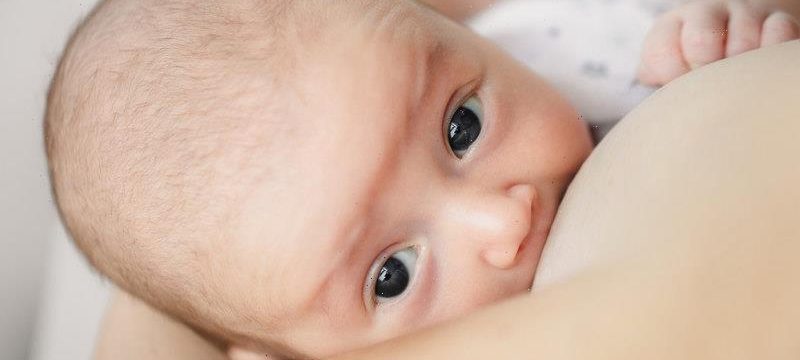The peak body for breastfeeding mothers has defended the creation of an educational resource about “chestfeeding” for transgender parents that has sparked debate about political correctness.
The Australian newspaper reported on Saturday that the Australian Breastfeeding Association (ABA) had developed a booklet about chestfeeding, which triggered outrage on talkback radio.
The Australian Breastfeeding Association says the resource was created for an LGBTQ+ audience and there are no plans to adopt the term ‘chestfeeding’ more widely.Credit:File
Rainbow Families, the peak body supporting LGBTIQ+ parents, paid the ABA $20,000 to create an educational booklet about lactating and chestfeeding for its community.
Both groups say the resource was intended as optional material for a specific audience, not as an attempt to rename the long-standing practice of breastfeeding.
“ABA is not changing our use of mother-to-mother language,” the organisation said in a Facebook post.
“We will not be erasing gendered language such as ‘mother’ or ‘mum’ or ‘mothering’ from our vocabulary, and we have no future plans to adopt the use of language such as ‘chestfeeding’ rather than ‘breastfeeding’ more generally within the Association.”
Rainbow Families is hosting a virtual 90-minute class in July called “Breastfeeding, Chestfeeding And Human Milk Feeding” for expectant parents in their community.
A Rainbow Families spokesperson said the organisation and the ABA were simply releasing “a standalone lactation education resource developed specifically for LGBTIQ+ parents”.
“We are not trying to change or erase the term ‘breastfeeding’ or replace it with the term ‘chest-feeding’,” the spokesperson said.
“In the best interest of healthy, thriving families, healthcare providers should use language that is appropriate for the family they are supporting.”
The word “chestfeeding” is preferred by some trans and non-binary people to describe feeding a baby human milk.
Labor’s spokeswoman for women Tanya Plibersek hosed down talk of changing the language around breastfeeding.
“I’m not sure that there’s a huge demand for this from the Australian public,” she told radio station 2GB on Tuesday night.
“For me, it’s going to be breastfeeding. I’m not changing what I call it.”
One Nation NSW leader Mark Latham told Sky News in February the British government had “swallowed the woke madness” after a proposal to replace “mother” with “person” in a new maternity leave bill for politicians. The government later backtracked.
Western Sydney University midwifery professor Hannah Dahlen said there was too much heat in the discussion.
“Everyone needs to take a deep breath. Calm down, stop thinking it’s a major conspiracy, put it into perspective and get on with life as is with a bit more sensitivity and insight,” Professor Dahlen said.
She said isolated examples of language changes overseas, such as in Britain, had made some people “very nervous the same thing is going to happen here”.
“Lots of women are feeling outraged because they don’t want to call it chestfeeding … We’ve got to not offend the vast majority in engaging in this biological part of life. At the same time we’ve got to be humane and kind and inclusive to those who may not fall into gender-typical norms.”
Professor Dahlen said the overreaction to this resource being created was unhelpful and her 30-year career as a midwife taught her that parenting was a personal journey.
“There’s no one-size-fits-all in any of this, so let’s individualise as a result,” she said.
“There are more important issues for us to get highly emotional about in the world today than that one.”
Australian National University sociologist Mary Louise Rasmussen said the topic acted as a trigger for people because it related to “how we think about gender and its relationship to sex”.
“Australian society is trying to catch up with massive changes young people are making around gender in more fluid ways. As a society we need to have conversations about this that aren’t histrionic,” Professor Rasmussen said.
She said using diverse language to communicate to particular audiences made health services more inclusive, but that did not mean erasing traditional terms such as “mothers” and “breastfeeding”.
“That, to my mind, is a beat-up.”
Brett Holmes, general secretary of the NSW Nurses and Midwives’ Association, said “midwives are required to practise without discrimination”.
“They are already expected to be mindful and adjust their language to suit the needs of any parents in their care,” he said.
NSW Health said it acknowledged the diversity of families and provided socially and culturally respectful care. It does not use the term chestfeeding on its website.
Get our Morning & Evening Edition newsletters
The most important news, analysis and insights delivered to your inbox at the start and end of each day. Sign up to The Sydney Morning Herald’s newsletter here, The Age’s newsletter here, Brisbane Times‘ here and WAtoday‘s here.
Most Viewed in National
From our partners
Source: Read Full Article

